 Man Up Now claims to be “herbal” and “all natural.” Consumers may mistakenly assume the product is harmless and poses no health risk. One consumer below thinks it no big deal.
Man Up Now claims to be “herbal” and “all natural.” Consumers may mistakenly assume the product is harmless and poses no health risk. One consumer below thinks it no big deal.
Consumers who have Man Up Now capsules should stop using them, because the FDA determined it contains sulfoaildenafil, a chemical similar to sildenafil, and the active ingredient in Viagra. Continue reading Consumer Alert: Man Up Now capsules →
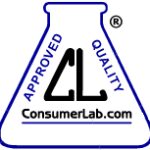 ConsumerLab.com has reported problems with 29% of the vitamin D supplements selected for testing and review. Continue reading More quality control problems with Vitamin D →
ConsumerLab.com has reported problems with 29% of the vitamin D supplements selected for testing and review. Continue reading More quality control problems with Vitamin D →
 Supplements containing turmeric and its key compound, curcumin, may be helpful in treating inflammatory diseases and other conditions.
Supplements containing turmeric and its key compound, curcumin, may be helpful in treating inflammatory diseases and other conditions.
ConsumerLab.com reports some problems with 2 of 10 products tested. Continue reading Product report: Turmeric and curcumin →
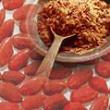 Red yeast rice is an alternative therapy to treat high cholesterol levels. It contains monacolins that may inhibit HMG-CoA reductase — the enzyme inhibited by statins.
Red yeast rice is an alternative therapy to treat high cholesterol levels. It contains monacolins that may inhibit HMG-CoA reductase — the enzyme inhibited by statins.
Researchers at Chestnut Hill Hospital, in Philadelphia, Pennsylvania, report marked variability of monacolin and citrinin content in 12 readily available red yeast rice products. Continue reading Marked variability in red yeast rice products →
 Resveratrol supplements have been popular since 2006, when studies in animals showed “life-extending” and “endurance-enhancing” effects. Similar evidence doesn’t exist for people, which is the reason there are few posts about it on this site.
Resveratrol supplements have been popular since 2006, when studies in animals showed “life-extending” and “endurance-enhancing” effects. Similar evidence doesn’t exist for people, which is the reason there are few posts about it on this site.
ConsumerLab.com’s most recent tests revealed that 2 resveratrol supplements provided only 43% and 87%, respectively, of their listed amounts of resveratrol. Continue reading Resveratrol: You don’t always get what you pay for →
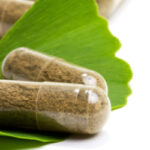 The New York Times reports, “Nearly all herbal dietary supplements tested in a Congressional investigation contained trace amounts of lead and other contaminants, and 16 of the 40 supplements tested contained pesticide residue that exceeded legal limits.
The New York Times reports, “Nearly all herbal dietary supplements tested in a Congressional investigation contained trace amounts of lead and other contaminants, and 16 of the 40 supplements tested contained pesticide residue that exceeded legal limits.
Here are the details of what the Government Accounting Office found. Continue reading High percentage of supplements are contaminated →
 CoQ10 and its activated form, ubiquinol, are popular supplements for treating or preventing a range of conditions including congestive heart failure, migraine headache, high blood pressure, and Parkinson’s disease — although none of the evidence is conclusive.
CoQ10 and its activated form, ubiquinol, are popular supplements for treating or preventing a range of conditions including congestive heart failure, migraine headache, high blood pressure, and Parkinson’s disease — although none of the evidence is conclusive.
ConsumerLab.com tested 31 products for content and dosing. Continue reading Product review: CoQ10 and ubiquinol →
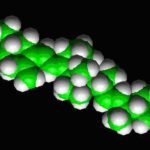 During the meeting of the Joint Consortium of Multiple Sclerosis Centers and America’s Committee on Treatment and Research in Multiple Sclerosis, researchers at Johns Hopkins University in Baltimore, Maryland, reported that actual content ranges between 1% and 82% of what’s on the label. Continue reading False labeling casts a shadow on OTC vitamin D products →
During the meeting of the Joint Consortium of Multiple Sclerosis Centers and America’s Committee on Treatment and Research in Multiple Sclerosis, researchers at Johns Hopkins University in Baltimore, Maryland, reported that actual content ranges between 1% and 82% of what’s on the label. Continue reading False labeling casts a shadow on OTC vitamin D products →
 ConsumerLab.com reports that their tests of fish oil, krill oil, and algal oil supplements revealed quality problems. Continue reading Omega-3 from fish, algae, and krill →
ConsumerLab.com reports that their tests of fish oil, krill oil, and algal oil supplements revealed quality problems. Continue reading Omega-3 from fish, algae, and krill →
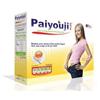 Testing by the MHRA (Britain’s Medicines and Healthcare products Regulatory Agency) found that these supposedly natural products contain an undeclared pharmaceutical ingredient called sibutramine (Meridia). Continue reading Consumer Alert: Payouji tea and Pai You Guo Slim Capsules →
Testing by the MHRA (Britain’s Medicines and Healthcare products Regulatory Agency) found that these supposedly natural products contain an undeclared pharmaceutical ingredient called sibutramine (Meridia). Continue reading Consumer Alert: Payouji tea and Pai You Guo Slim Capsules →
 There are 2 things in CAM you can count on.
There are 2 things in CAM you can count on.
First: There’s a good chance that the contents of the supplement you buy are likely to be less than what’s listed on the label. Continue reading Consumer Alert: The list is almost too long… to list →
 Researchers from the Russian Academy of Natural Sciences, in Moscow report that time-released tablets (Allicor) are more effective than regular garlic supplements (Kwai). Continue reading Treating hypertension with time-released garlic tablets →
Researchers from the Russian Academy of Natural Sciences, in Moscow report that time-released tablets (Allicor) are more effective than regular garlic supplements (Kwai). Continue reading Treating hypertension with time-released garlic tablets →
 This study was conducted at the University of Sofia in Bulgaria using local herbals.
This study was conducted at the University of Sofia in Bulgaria using local herbals.
I don’t know the relevance to herbals in other parts of the world, but the results are disturbing. Continue reading Arsenic, cadmium and lead in medicinal herbs →
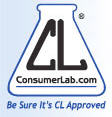 Milk thistle is sometimes taken as a natural treatment for liver problems.
Milk thistle is sometimes taken as a natural treatment for liver problems.
Unfortunately, most milk thistle supplements contain less than the labeled amount of silymarin. Continue reading ConsumerLab tests milk thistle supplements →
 The relationship between supplements and lead levels in blood has been an ongoing project for researchers in Boston.
The relationship between supplements and lead levels in blood has been an ongoing project for researchers in Boston.
In this study, researchers from Beth Israel Deaconess Medical Center report specific herbal supplements are associated with higher blood lead levels among women. Continue reading Herbals and lead levels in Americans →
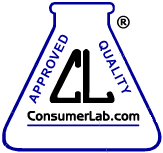 Just 1 of 39 coenzyme Q10 (CoQ10) (ubiquinol) supplements tested contained levels lower than listed on the label.
Just 1 of 39 coenzyme Q10 (CoQ10) (ubiquinol) supplements tested contained levels lower than listed on the label.
But large variations in dose and forms may confuse consumers, according to ConsumerLab in their latest report. Continue reading ConsumerLab tests Coenzyme Q10 →
 Among 17 products, 4 failed to measure up.
Among 17 products, 4 failed to measure up.
That’s almost 25%. Continue reading ConsumerLab reports on vitamin A →
Complementary and Alternative Medicine: Fair, Balanced, and to the Point
![]() Man Up Now claims to be “herbal” and “all natural.” Consumers may mistakenly assume the product is harmless and poses no health risk. One consumer below thinks it no big deal.
Man Up Now claims to be “herbal” and “all natural.” Consumers may mistakenly assume the product is harmless and poses no health risk. One consumer below thinks it no big deal.






 Researchers from the Russian Academy of Natural Sciences, in Moscow
Researchers from the Russian Academy of Natural Sciences, in Moscow  This
This  Milk thistle is sometimes taken as a natural treatment for liver problems.
Milk thistle is sometimes taken as a natural treatment for liver problems. The relationship between supplements and lead levels in blood has been an ongoing project for researchers in Boston.
The relationship between supplements and lead levels in blood has been an ongoing project for researchers in Boston. 14 brands were
14 brands were